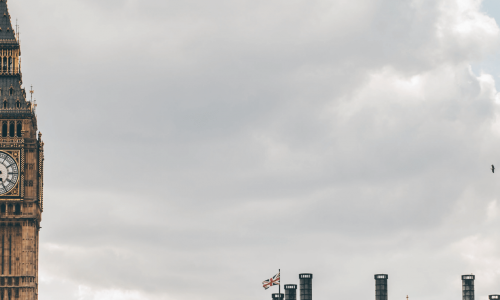On Good Friday, no one dances in Germany. Not because people don’t want to celebrate, but because they’re not supposed to. Good Friday (Karfreitag) is one of the most solemn and meaningful public holidays in the German calendar – deeply rooted in religious tradition, legally protected, and culturally not without controversy.
What Is Good Friday?
Good Friday is the Friday before Easter Sunday and commemorates the crucifixion of Jesus Christ in the Christian tradition. The German word Karfreitag stems from the Old High German kara, meaning sorrow, mourning, or grief – a fitting name for a day of silence and reflection.
In the Christian calendar, Good Friday marks the culmination of Holy Week, when believers contemplate Jesus' suffering and death before celebrating His resurrection on Easter Sunday.
A Nationwide Public Holiday
Good Friday is one of just nine public holidays observed in all 16 federal states of Germany, regardless of regional religious affiliations. These include:
New Year’s Day, Easter Monday, Ascension Day, Whit Monday (Pentecost), May Day (Labour Day), German Unity Day, and 25 and 26 December (Christmas).
This makes Good Friday not only religiously significant, but also a legal constant in a country where most holidays vary by region.
- Employees are generally off work,
- shops remain closed,
- and public life slows down significantly.
Why Is Good Friday a “Silent Holiday”?
In Germany, Good Friday is classified as a "stiller Feiertag" or silent holiday. That means:
- no loud music,
- no public dancing,
- in some states, restrictions on movie screenings,
- and bans on sporting events or festivities.
While specific rules vary by state, the general idea remains the same: respectful quiet, time for reflection, and a pause in the everyday hustle.
What Does the Law Say?
Each federal state in Germany has its own holiday law, but all give Good Friday special protection. For example, in Bavaria, it is a “silent day with heightened restrictions”, meaning that public entertainment is strictly prohibited.
So if you're planning a techno party on Good Friday – better check your local regulations or reschedule to Saturday.
Controversy Around Restrictions?
Naturally, Good Friday is not without debate. Critics argue that restrictions on entertainment infringe on personal freedom and secular expression. Supporters emphasize the day's social function as a moment of collective silence and respect, regardless of faith.
Fun Fact: Each year, activist groups publish a list of “banned films” for Good Friday – movies like Life of Brian or Pulp Fiction that aren’t officially allowed to be screened. This list is widely shared, often with a wink.
What Do People Do on Good Friday?
Whether religious or not, many people in Germany use Good Friday to slow down and reflect:
- go for a walk in nature,
- read a good book,
- share a quiet meal with family, or simply do nothing at all and allow for a moment of stillness.
For Christians, attending a church service is often part of the day, featuring solemn music, candlelight, and a meditative atmosphere.
A Day for the Essentials
Good Friday is not about spectacle. And that’s exactly where its strength lies. In a world full of distractions, this silent holiday reminds us of the power of stillness, reflection, and pause.
Whether you believe or not, Good Friday offers an invitation: to take a step back from the noise. And maybe, just maybe, that’s something we all need right now.













Add new comment